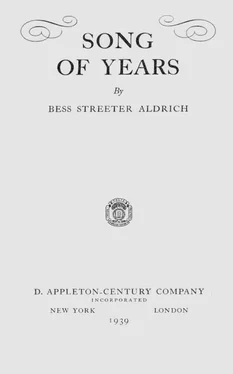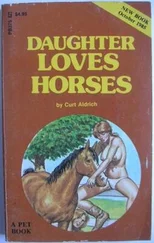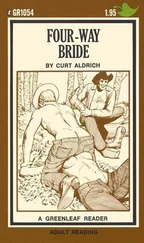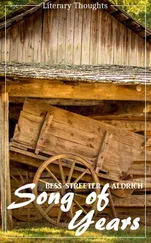1 ...8 9 10 12 13 14 ...24 At Wayne’s question concerning which of the two settlements the Martins looked upon as their own for trading, Sturgis Falls or Prairie Rapids, Jeremiah said at once: “Sturgis Falls. We’re closer for one thing. It’s older and bigger. It’s a platted town now which Prairie Rapids ain’t. It had the first post office . . . mail brought on horseback. . . .”
Sarah, his wife, sniffed. “Demsey Overman carried the letters in his stovepipe hat. Never went out of his way none. When he happened to meet anybody who had a letter, he’d take off his hat and pull it out.”
“Now, Ma”—Jeremiah spoke in conciliating fashion—“I’d just as soon get a letter out of Demsey Overman’s hat as out of a big post-office building.”
Wayne decided that Jeremiah Martin liked to promote good feeling, enlarge a little upon events, make them seem progressive and panning out well, that Sarah, his wife, enjoyed pricking the bubbles of his enthusiasm by minimizing events and their good effects. Probably she had not wanted to come out here to the new state with its few settlers, still carried the grievance with her.
“And another thing,” Jeremiah went on, “Sturgis Falls is the county-seat . . . has all the court records . . .”
Sarah gave her preliminary sniff. “ ‘All the court records,’ ” she mimicked. “A little black book bought at Dubuque. Has two items in it, they say—and one of them’s the seventy cents they paid for the book. Court-house is a little two-by-four room in the loft over Mullarky’s store where you couldn’t stand up straight if you tried . . .”
“Now, Ma,” Jeremiah said dryly, “some of ’em that comes to do business couldn’t stand up straight if they had all the room in the world,” which had the effect of setting every one off into laughter again.
Wayne liked them, warmed to their gay merriment over nothing, their simultaneous chatter as though one never listened to another. Such trivialities set them off, such inconsequential happenings gave them pleasure. Here were girls who seemed unconscious of their femininity, who would never cry over a man with their hearts on their sleeves.
Jeremiah was inclined to sit on when the meal was over, telling Wayne tales of the Valley: of Mrs. Hanna, the first settler down near Prairie Rapids, saying when she saw the sparkling river and green grass, “I never knew there was such a place this side of Heaven. Boys, here’s where we’ll have a town”; of the Indians, the Musquakies, camped above the bluffs beyond Sturgis Falls, getting maple sap from a grove claimed by a white settler and how the settler took an ax and destroyed all their butternut troughs, so that only the diplomatic intervention of Mr. Virden prevented a massacre; how the Overman girls baked corn-meal pancakes one morning for an Injun who went away and told all the others and they kept coming until the girls had fed the whole tribe.
But Sarah said to come now, the dishes wouldn’t do themselves, and started every one to her work.
It amused Wayne to see the diminutive, wiry woman order all these grown girls about. “Phoebe Lou, you and Suzanne red up the table and take care of the dogs and the vittles. Sabina, you wash. Melinda, wipe. Jeanie, put away. Emily, set buck-wheat for breakfast. Celia, tend to the candle-lightin’ and take the chairs in the other room.”
There was some dissension from Melinda. “Candle-lighting, Ma. That’s too easy for Celia with me wiping all these dishes.”
“That’ll do for you,” little bustling Sarah said. “Scoot, now.”
And Melinda scooted.
By the time the last girl was through with her appointed task, a good-looking man with black side-whiskers arrived on horseback and was introduced as Mr. Tom Bostwick. He was dressed in a nice suit with fashionable stock, so that Wayne wished for the first time he had dressed likewise, thinking of his own best suit and stock up there in the brass-bound chest on the prairie.
Tom Bostwick was from Sturgis Falls where he had recently located to buy and sell grain and to dip into various enterprises in the little settlement. He was an interesting talker, having been to California in ’49, relating to Wayne how he had gone from Dubuque down the Mississippi to Point Isabel, across the Gulf of Mexico and the Mexican Republic to Masatland, up the coast to San Francisco, all in three months, stayed there a year and then, coming back by way of Panama and New Orleans, had located in Sturgis Falls which he thought now was to be his permanent home.
He had come visiting at the Martins’ on account of one of the girls, Wayne was quite sure, but which one? It was like a conundrum that must soon reveal its answer. He found himself looking them all over again, wondering which would be his choice, if he were Tom Bostwick: Sabina? Emily? Jeanie? Phoebe Lou? Melinda? Celia? No, Melinda, Celia, and Suzanne were too young for Mr. Bostwick. Before he had decided which of the other four it could be, Jeremiah got a jew’s-harp off the fireplace mantel and settling it against his full-lipped mouth, after much pushing aside of heavy beard and mustache, twanged out a lively air. Then Phineas took a gray calico bag from the side of the cupboard and removed a fiddle which he told Wayne had been left to him by a German hired man back in York State.
And now the evening’s “sing” began. Hymns—folk-songs—romance. All the voices rolled out lustily, with Phineas turning out a lively if uncertain accompaniment.
Wayne was enjoying himself, letting his voice out to its full volume in order to hold his own with this energetic tidal wave of feminine voices. One, he noticed, was rasping and off-key and he located it soon as Emily’s. The others knew it, too, and made no bones about joking her.
“I hear it inside me all right,” the unabashed Emily explained, “but when it comes out it’s not just the way I meant it to be.” And laughed at herself with the others.
Tom Bostwick was singing, too, peculiarly, in a thin high voice which should have come from a small person, and sounded somewhat ludicrous emanating from his large frame.
The answer to the riddle was apparent. It was Sabina, there was no mistaking.
“. . . one cold winter’s night
And the wind blew across the wild moor . . .”
Tom Bostwick’s eyes were on the crow-wing hair, the rosy cheeks, and the snapping dark eyes of Sabina, his high thin voice almost cracking in its fervor:
“When Mary came wandering home with her babe
Till she came to her own father’s door . . .”
That was to be the last song, for it was late and all were to get up early to help Wayne. The voices rose in a perfect orgy of volume and emotion:
“The villagers point out the spot
Where the willows droop over the door
Saying ‘There Mary died once a gay village bride
By the winds that bled ’cross the wild m-o-o-o-r.’”
With Emily holding onto the last note longest, loudest and off-key, so that the song broke up with laughter.
The evening was over, but Tom Bostwick lingered protectingly in the corner a moment with the object of his regard as though the winds blowing over the wild moor might have had their effect on the rosy cheeks and crow-wing hair of Sabina.
Jeremiah told Wayne he might as well stay all night—plenty of room up there in the loft with Phineas and Henry. But Wayne said he would go back to his wagon-box, be there to get a good early start in the morning.
“Any time you see a storm comin’ up, though, get right over here to be under shelter. Now, you mind.” This from Sarah, the mother, who was evidently not altogether the exasperated nagger she appeared to be.
When he left they all trooped out to see him off. Suzanne ran ahead to the small gate in the stake-and-rider fence with a lighted candle, cupping her hand over the little flame to protect it.
Читать дальше












